
- This event has passed.
Latest Developments in Density Functional Methodology Symposium
30 September 2022 @ 2:30 pm – 4:30 pm
River Room, Strand campus, King’s College London
Pushing the frontiers of density functional theory using machine learning – Aron Cohen, Google Deepmind
We will highlight the use of machine learning to the exchange-correlation functional, where numerous hand-crafted functional forms have already achieved great success in calculations throughout chemistry and physcis. In our recent DM21 functional (Kirkpatrick et al., Science 374, 1385 (2021)) we illustrate a path to utilise the power of machine learning to this critical problem from creating accurate data that captures large parts of chemistry to addressing some of the hardest challenges of DFT.
Smooth(er) meta-generalised gradient approximation functionals: design and applications in condensed systems – Albert Bartok-Partay, Warwick
I will present our efforts to create a regularised SCAN functional which improves on the numerical instabilities of the original. Results and benchmarks will be discussed, focussing on structural, energetic and NMR properties of organic and inorganic crystals.
The ABC… of extended DFT – Andrew Teale, University of Nottingham
The universal density functional is elegantly expressed in Lieb’s convex formulation of DFT, giving access to the tools of convex analysis. When additional variables are introduced the universal density functional can become dependent on not only the charge density but also additional variables. An example is DFT in a magnetic field B expressed in terms of a vector potential A. In this case the functional depends additionally on the paramagnetic current density. Another example is orbtial-free DFT, in which the functional depends on the charge density and the the chemical potential. The four-way correspondence of bivariate functionals is a useful tool to understand the density functionals in these contexts. Practical implementations and applications of current-DFT and orbital-DFT will be discussed.
Organised by:
George Booth
george.booth@kcl.ac.uk
